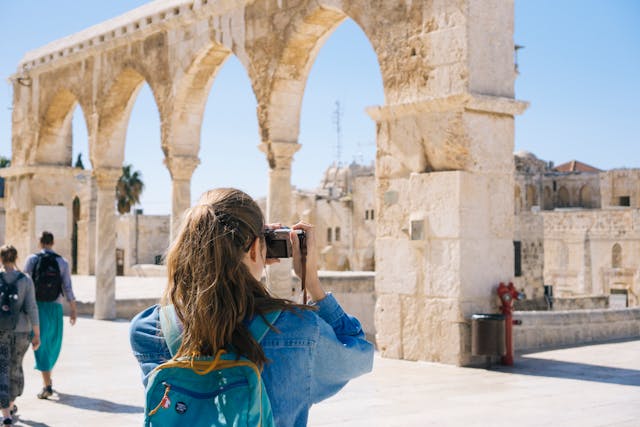The dream of working from exotic locations doesn’t require trust fund money or Instagram fame. For the past three years, I’ve maintained a full-time remote job while traveling through 17 countries, spending less than I did living in New York City. This nomadic lifestyle emerged from careful planning, smart compromises, and systems that keep my work consistent no matter where I wake up.
Establishing a Location-Independent Income
My journey began with transitioning a traditional marketing job to fully remote status. Rather than quitting immediately, I negotiated a trial period working from different time zones to prove my productivity wouldn’t suffer. Six months of consistent performance convinced my employer to make the arrangement permanent. Colleagues who followed this gradual approach succeeded far more often than those who demanded immediate remote privileges.
Freelancers face different challenges. I built a client base willing to judge me by deliverables rather than location by focusing on measurable outcomes. A content writer friend secured recurring work by guaranteeing two-day turnarounds regardless of geography, proving reliability matters more than physical presence. The key was developing specialized skills that couldn’t easily be replaced by local candidates.
Mastering the Logistics of Mobile Work
Reliable internet access makes or breaks digital nomadism. I carry three backup solutions: a local SIM card with data plan in every country, a portable WiFi device, and knowledge of nearby coworking spaces. Testing connectivity before booking accommodations prevents stressful scrambles before important meetings. A web developer I met in Bali schedules all client calls during mornings in coworking spaces, using afternoons for independent work at cafes or his villa.
Time zone management requires discipline rather than heroics. Instead of trying to match my home office hours from Asia, I established set availability windows that overlap partially with both European and American business hours. This balanced approach prevents burnout while maintaining responsiveness. My calendar automatically displays three time zones to avoid scheduling mistakes that plague many traveling workers.
Traveling Smart on a Professional Budget
Slow travel reduces costs dramatically. Staying a month in Chiang Mai costs less than two weeks of bouncing between European cities. Monthly apartment rentals often come 40-60% cheaper than nightly rates, with kitchens enabling further savings on food. I use local grocery stores and markets, reserving restaurant meals for authentic culinary experiences rather than daily convenience.
Transportation choices add up quickly. Overnight buses and trains save on accommodation while covering distance. Budget airlines work for essential hops, but I’ve learned to love regional buses and ferries that reveal more of each country anyway. A photographer I met in Lisbon travels exclusively by train now, finding clients along overland routes through Europe.
Healthcare requires special attention. My international health insurance costs less than my previous U.S. plan while covering emergencies worldwide. I also research quality local clinics in each destination as backup. A digital nomad in Mexico City introduced me to affordable private healthcare that rivals what I experienced back home, just without the bureaucratic nightmares.
Maintaining Professionalism on the Road
My mobile office fits in a 22-liter backpack: lightweight laptop, noise-canceling headphones, portable monitor, and a universal power adapter. This minimalist setup forces organization while remaining airline carry-on compliant. A financial consultant I worked with in Buenos Aires uses just an iPad Pro and folding keyboard for her entire practice.
Coworking spaces provide stability amidst movement. I join spaces offering weekly or monthly memberships rather than daily rates, gaining both reliable workspaces and instant communities. In Medellín, our coworking group became trusted beta readers for each other’s projects while sharing local tips.
Routines anchor productivity when surroundings constantly change. My workday always begins with clearing urgent communications, then moves to focused project time, reserving afternoons for meetings and administrative tasks. This structure persists whether I’m in a Berlin apartment or a Thai beach town. An app developer friend maintains this same discipline by using the Pomodoro technique religiously across time zones.
Budgeting for Sustainable Nomadism
Tracking every expense revealed surprising patterns. I now know my sweet spot is 2,100monthlyacrossSoutheastAsiaor2,100monthlyacrossSoutheastAsiaor3,200 in Western Europe—far below my old stateside costs. Accommodation stays under 35% of my budget, food at 25%, with the rest covering travel, workspaces, and experiences. A spreadsheet automatically converts local currencies to my home accounting standard.
Tax strategy became unexpectedly important. Establishing residency in a no-income-tax state before leaving America saved thousands. Many digital nomads incorporate as LLCs or use umbrella companies for cleaner financial separation. An accountant specializing in location-independent workers proved worth every penny during filing season.
Banking and payments require multiple options. I maintain accounts with a traditional bank, an online bank, and a transfer service like Wise. Multiple debit cards from different providers prevent disasters when one gets frozen or lost. A freelance writer I met in Prague taught me to always carry some emergency cash in U.S. dollars or euros as a universal backup.
Building Community While Staying Mobile
Contrary to stereotypes, digital nomadism doesn’t have to mean loneliness. I join professional communities like Dynamite Circle and location-based groups in each city. Regular video calls with fellow remote workers back home maintain deeper connections than just social media. A graphic designer in my network organizes monthly “walk and talk” Zoom meetings where we chat while exploring our respective cities.
Romantic relationships adapt surprisingly well when both partners embrace the lifestyle. My girlfriend and I coordinate travel around reliable internet hubs, using tools like Trello to manage shared logistics. We’ve met several couples who maintain thriving relationships across continents when needed, scheduling quality time together between solo adventures.
Family connections require creativity. I send postcards from each new location and schedule regular video calls with relatives. Surprisingly, my parents now enjoy our conversations more than when I lived nearby but was too busy for quality time. A software engineer friend sets up his elderly mother with a digital photo frame that automatically updates with his travel pictures.
Overcoming the Hidden Challenges
Visas present an evolving puzzle. Tourist visas work initially, but longer stays require research. Some countries now offer specific digital nomad visas, while others tolerate border runs. I never push limits—getting banned from a country isn’t worth the risk. An entrepreneur I met in Portugal obtained residency through their D7 visa program designed for remote income earners.
Healthcare requires proactive management beyond just insurance. I research quality medical facilities in each new location and carry digital copies of my records. A terrifying bout of food poisoning in Vietnam taught me to always identify reputable hospitals before needing them. Now I ask local coworkers for recommendations immediately upon arrival.
The lifestyle isn’t permanently sustainable for most—myself included. I’ve met few nomads over 50, and many transition to part-time travel after several years. My current plan involves establishing home bases in three continents to rotate between, combining stability with continued exploration. A mentor who traveled full-time for a decade now spends six months annually in Portugal while taking shorter trips the rest of the year.
This lifestyle works because I treat it as a professional arrangement first, adventure second. My clients and employers never feel the difference between me working from Miami or Manila because deliverables arrive consistently. The freedom comes from discipline, not from abandoning responsibility. What began as a one-year experiment has transformed into a sustainable way of living that I’ll continue adapting as circumstances evolve. The world makes an excellent office when you approach it with preparation rather than just wanderlust.






